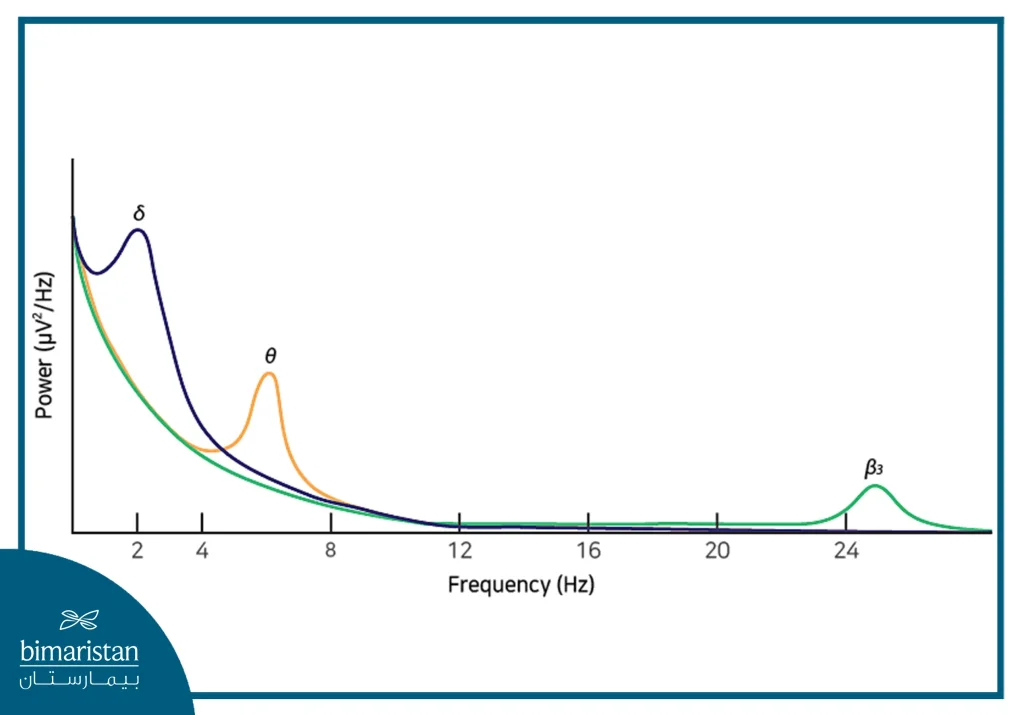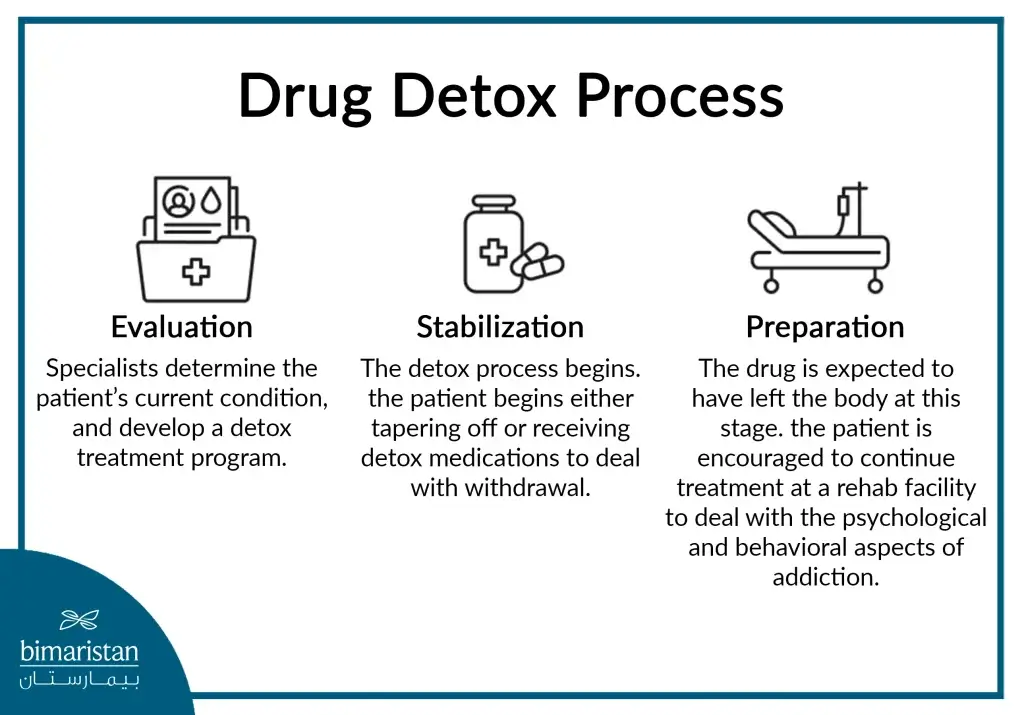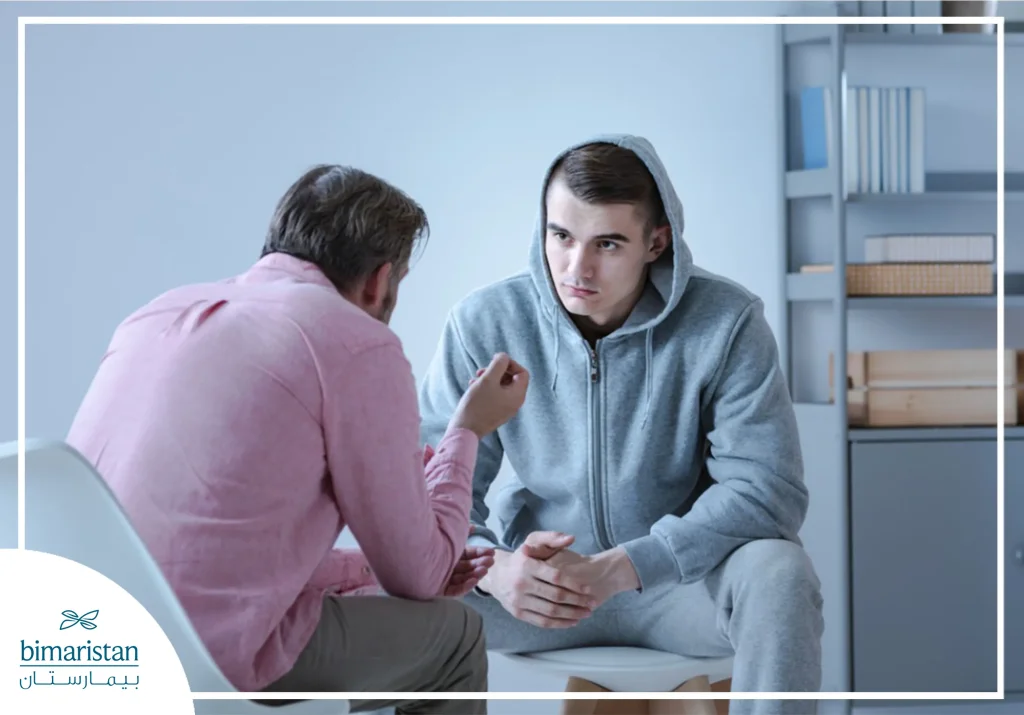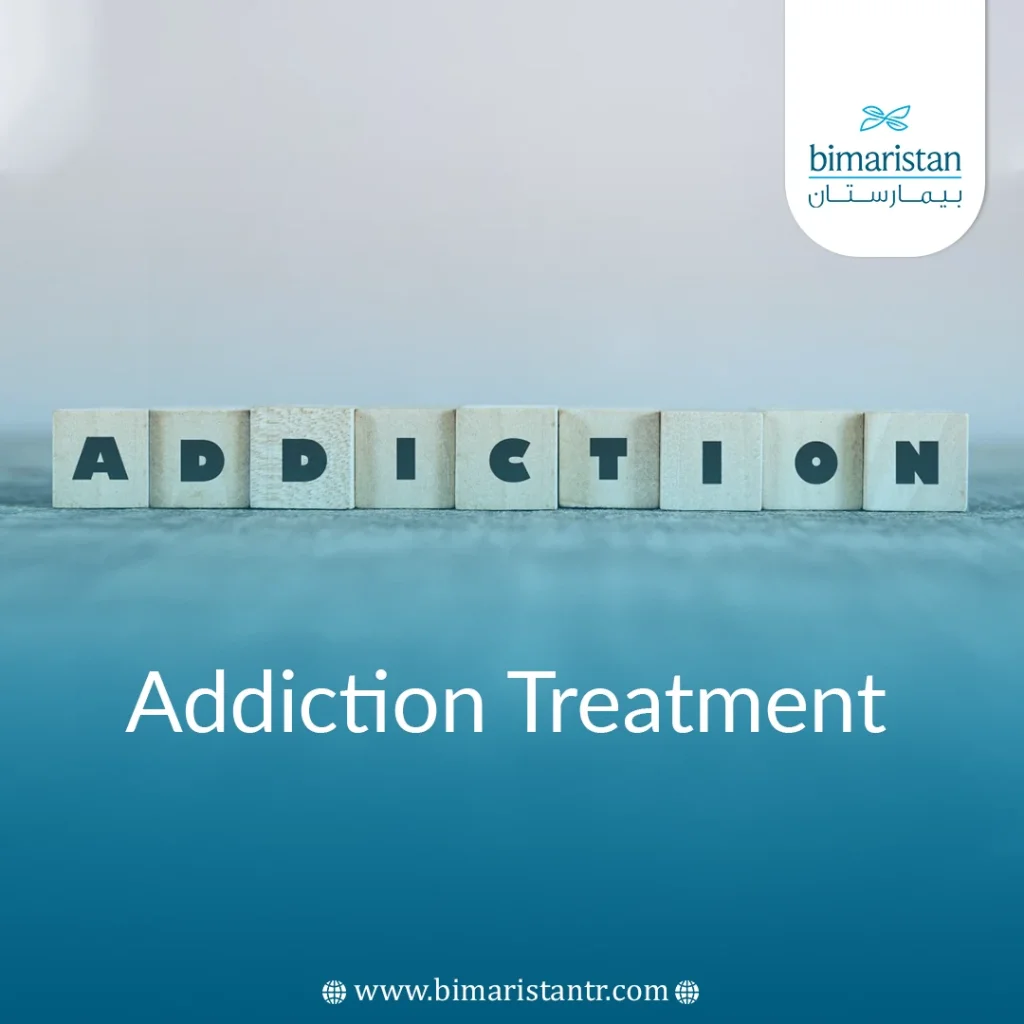Addiction treatment in Turkey addresses the stages of addiction, from experimentation to regular and high-risk use, ultimately leading to full-blown addiction. Recovery is a gradual process, as freedom from addictive behavior takes time.
The recovery process involves a set of learned coping mechanisms that must be implemented over multiple periods and stages, and the only way anyone can achieve lasting abstinence is to get professional help.
Understanding the stages of addiction treatment in Turkey can be a lifesaver for addicts and their families, as each stage must be clearly understood after recognizing and acknowledging the issue.
The importance of proper addiction treatment in Turkey
The primary goal of treatment is to achieve abstinence from the addictive state towards any object, substance, or action and to maintain psychological integrity.
Effective addiction treatment in Turkey is essential due to the high risk of relapse in most addictive disorders. Treating addiction in a systematic, evidence-based manner reduces the chance of relapse, which can often return stronger if treatment is inadequate. Relapse makes future treatment more challenging, posing additional physical and psychological risks for patients and complicating case management for healthcare providers. Proper addiction treatment in Turkey not only supports long-term recovery but also minimizes the burden on both patients and medical professionals.
Stages of drug addiction treatment in Turkey
Despite the difficulty and complexity of addiction recovery, a proper approach to treatment helps to increase the cure rate to nearly 95% for committed patients. The treatment journey is divided into five separate phases:
The first stage: Assessment and diagnosis
A treatment plan cannot be initiated before a thorough assessment of the patient and their condition and an accurate and appropriate diagnosis is obtained.
A diagnosis of drug addiction requires a comprehensive assessment that includes a psychiatrist’s report. Blood, urine, or other laboratory tests are used to assess drug use, but they are not reliable addiction diagnostic tests that can be used to monitor treatment and recovery.
To diagnose drug addiction, in addition to studying the patient’s story and hearing from his or her family, the criteria in the Diagnostic and Statistical Manual of Mental Disorders (DSM-5) published by the American Psychiatric Association should be used.
QEEG Topographic Brain Mapping (QEEG)
The use of QEEG Topographic Brain Mapping (QEEG) is essential in the diagnosis and treatment of alcohol addiction. It is a test that measures the degree of craving symptoms and the degree of deterioration of frontal lobe function, thus diagnosing addiction and monitoring the degree of recovery after treatment to increase the success rate of treatment.
According to the following chart, we notice an increase in beta waves when craving alcohol. In chronic alcoholism, slow waves such as delta waves or theta waves increase due to decreased frontal lobe function.

Phase Two: Detox
It is enough to be diagnosed by a doctor to start the detoxification phase or so-called withdrawal therapy immediately. This treatment aims to stop using drugs as quickly and safely as possible without serious side effects.
It may be safe to undergo outpatient withdrawal treatment, but some patients may need to be hospitalized. Withdrawal from different classes of drugs, such as stimulants or opioids, produces different side effects and requires different approaches. Detoxification may involve gradually reducing the dose of the drug or temporarily replacing it with other substances, such as methadone or buprenorphine.
Replacing narcotics with other substances for Addiction Treatment in Turkey requires a doctor’s approval and should not be taken without a doctor’s review.

The third stage: Psychotherapy and Behavioral Rehabilitation
This particular stage is a major challenge in the therapeutic journey because it relies heavily on the patient’s awareness and ability to adhere to the treatment plan, so psychotherapy and behavioral rehabilitation must be included as part of the therapeutic journey.
A psychiatrist performs behavioral therapy and may take place with an individual, family, or group. The therapist’s task at this stage is to:
- Helping the patient develop new ways to cope with drug cravings
- Suggest strategies for drug avoidance and relapse prevention
- Provide suggestions on how to deal with relapse if it occurs
- Talk about issues related to career, work, legal issues, and relationships with family and friends
- Involve family members to help them develop better communication and support skills

Fourth stage: Drug therapy
Your psychiatrist may recommend medications as part of your addiction treatment plan. These medications can reduce opioid cravings and may help prevent relapse. Pharmacologic Addiction Treatment in Turkey options for opioid addiction may include buprenorphine, methadone, naltrexone, and a combination of buprenorphine and naloxone.
Fifth stage: Social Support and Reintegration
Substance use is often an isolated experience that the patient keeps to themselves. Feelings of loneliness are an important risk factor for substance abuse. When people become addicted to alcohol or drugs, they tend to gravitate towards groups of people who use the same substances. This social pattern perpetuates the cycle of addiction and makes it difficult for a person to seek treatment even when they realize they need it.
Here, the role of the family and community in supporting the recovering user is highlighted by separating the user from his community, which supports him in overcoming these wrong behaviors and helping him integrate into a productive and positive society.
Common Addiction Symptoms
Symptoms of addiction vary from person to person and depend on the substance and the health status of the addict. Symptoms often include the following:
- Inability to stop: People may use a substance or engage in harmful, addictive behavior despite multiple attempts to stop. Patients with addiction often lie to their families about it or try to hide it.
- Increased habituation: Over time, they may need more of a substance or activity to feel the same euphoric effects they had before.
- Intense focus on the substance or activity: Addicted people become pathologically preoccupied with the substance or activity.
- Lack of control: They may feel like they have lost all control and often feel helpless, guilty, and depressed.
- Withdrawal symptoms: Addicts may experience emotional and physical withdrawal symptoms when they stop using. Physical symptoms include shaking, sweating, or vomiting.
How to choose the right addiction treatment center
An addiction treatment center in Turkey is a treatment facility for people suffering from addiction disorders that include alcohol or drug addiction. Some people periodically go to these centers for proper treatment, while others live in a center for a certain period of time until the treatment is fully completed. Here are some tips to help you choose the right center for you:
Identifying Initial Needs
Before considering which rehabilitation center to go to, a patient first needs to understand exactly what they are looking for. Make a list of wishes that may make the treatment more comfortable, as each facility offers different services and amenities.
Exploring levels of care
Finding the right level of care is critical to the effectiveness of treatment, so it’s important to first understand what options are available. Many patients begin their treatment journey with detoxification.
Many patients then move on to inpatient or outpatient rehabilitation. Multiple levels of care are available within these two types of addiction treatment in Turkey.
Researching Addiction Treatment in Turkey Options and Choosing the Right Location
Once you understand the different needs and levels of care available, it’s time to explore the options and create a list of centers that meet your personal criteria and needs.
The difference between detox and holistic therapy
Detox is the process of cleansing the body of drugs or alcohol that an individual has consumed. The purpose of detoxification is to safely manage withdrawal symptoms when someone stops using drugs or alcohol. Everyone has a different experience with detoxification depending on the type of drug and the duration of its use.
Drugs used in detoxification help keep former addicts comfortable while the drugs are leaving their bodies, ensuring a withdrawal with the least possible side effects.
Comprehensive treatment includes detox as well as a comprehensive approach of behavioral and psychological therapy, follow-up, and social support.
The importance of psychotherapy in recovery
Psychotherapy is a highly effective approach to Addiction Treatment in Turkey, offering patients a safe environment to explore and address the root causes of their addiction. Through sessions with a trained therapist, individuals gain tools to manage cravings, cope with triggers, and build resilience. Psychotherapy also supports a positive mindset, improves self-esteem, and fosters healthier coping mechanisms, helping patients transform their lives. Addiction treatment in Turkey can lead to a healthier, happier future with the right guidance.
Drugs used in Addiction Treatment in Turkey
There are several medications that vary depending on the type of addiction:
- Opiates: Methadone, buprenorphine, extended-release naltrexone, and lofexidine
- nicotine: Nicotine replacement therapies (available as a patch, inhaler, or gum), bupropion, and varenicline
- Alcohol: Naltrexone, Disulfiram and Acamprosate
How can a family support a person in recovery?
Family support plays a critical role in Addiction Treatment in Turkey for many individuals, providing the emotional and moral encouragement needed to continue the recovery process. Research shows that people with substance use disorders have better recovery outcomes when their family members provide positive support.
Substance abuse affects not only the individual but also their family. It can damage the family structure and relationships and leave behind guilt, anger, fear, and despair. Recognizing that addiction is not just an individual issue but a family crisis is essential to providing effective treatment. Coping strategies and fostering healthy, supportive family dynamics are critical in the fight against addiction.
Here are some of the types of support a family can provide:
- Emotional support: Drug and alcohol addiction is often associated with loneliness, isolation, and guilt. Family members can provide emotional support through empathy and understanding. Providing emotional stability and understanding helps the recovering person feel cared for and safe, reassuring them that they are not alone in their battle.
- Accountability and follow-up: Family members can serve as accountability partners by reinforcing personal responsibility and encouraging staying committed to recovery, as family members help keep the patient motivated to stick to their recovery plan.
- Understanding: Families who participate in family therapy or treatment programs come to understand the complexities of addiction and recovery and gain insight into what the patient is going through, fostering patience, empathy, and love.
- Reinforce positive behaviors: Loved ones can encourage positive changes, boosting the individual’s self-esteem, morale, and confidence in recovery.
- Hope: A strong, supportive family gives the individual hope for recovery.

How to avoid relapse after treatment
Relapse prevention skills are essential to learning how to live a normal life in recovery. Recovery from alcohol or other drugs is a process of personal growth that involves stages of development. At any stage of recovery, there is a risk of relapse, which makes knowing and understanding relapse prevention skills critical, and the best relapse prevention skills include the following:
- Self-care: Common acute withdrawal symptoms when recovering from addiction include insomnia and fatigue. By exercising and eating a balanced diet, you can improve your quality of life and sleep, which can be done by creating and following a structured sleep, exercise, and eating schedule.
- HALT strategy: HALT is an acronym for Hunger, Anger, Loneliness, and Tiredness. Whenever you feel the urge to use or feel anxious or upset, ask yourself if you feel any of these symptoms. The most common triggers for many recovering alcoholics and addicts are hunger, anger, loneliness, and fatigue. By taking a regular HALT inventory, one can help prevent the risk of relapse.
- Meditation: A concept that teaches individuals to become more self-aware so that they are better able to deal with potential triggers for relapse.
The fear of relapse can be a stressful obsession for many patients, but it doesn’t have to be a cause for stress when the patient is fully prepared with a toolkit of healthy coping strategies.
Understanding the issue and the parameters facing the addiction patient in their treatment journey is the cornerstone of a successful journey. Applying relapse prevention techniques on a daily basis can go a long way in minimizing the risk of relapse.
Don’t forget to contact the psychiatry experts at Bimaristan to learn more about our inpatient and outpatient addiction treatment programs.
Sources:
